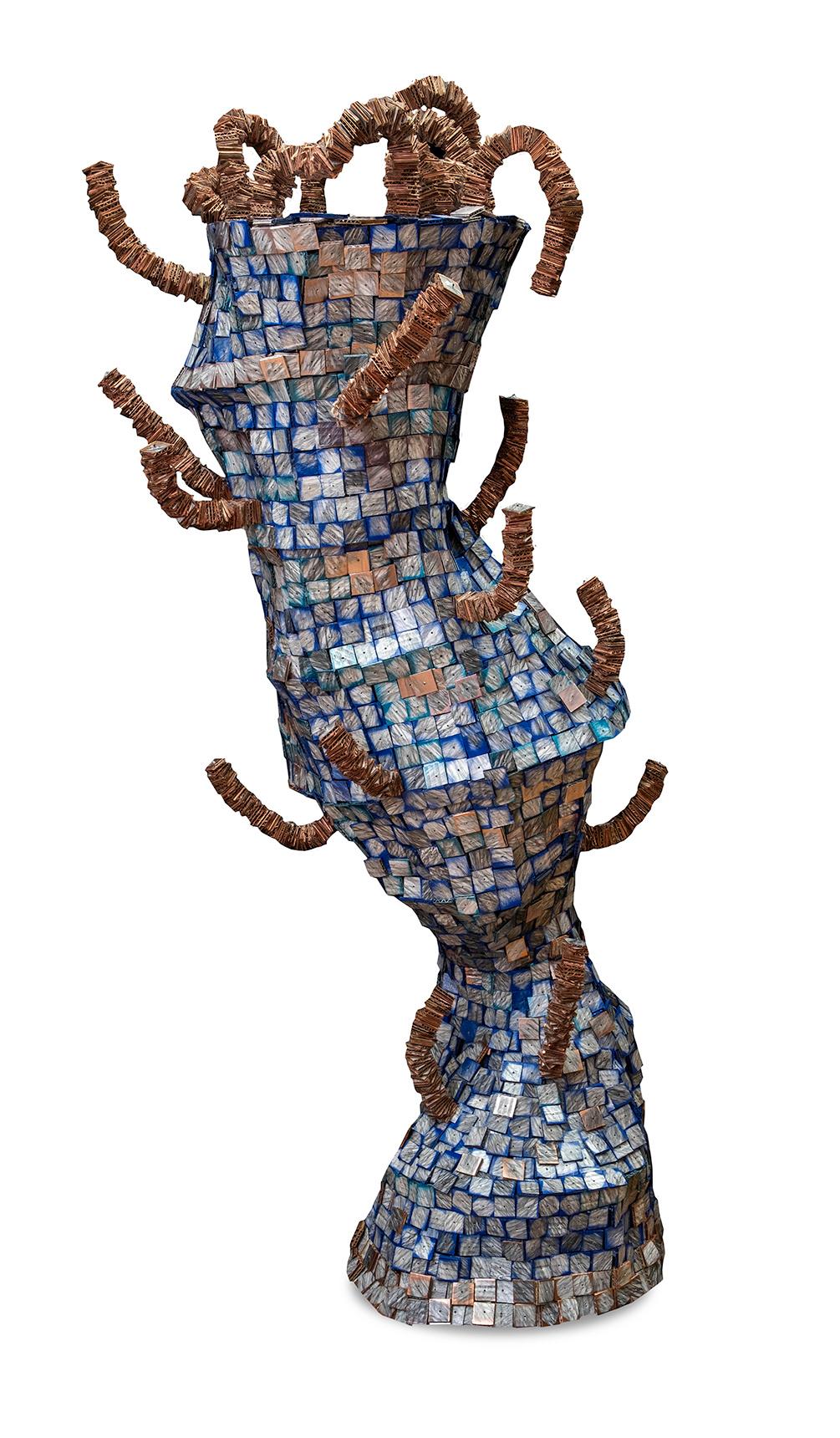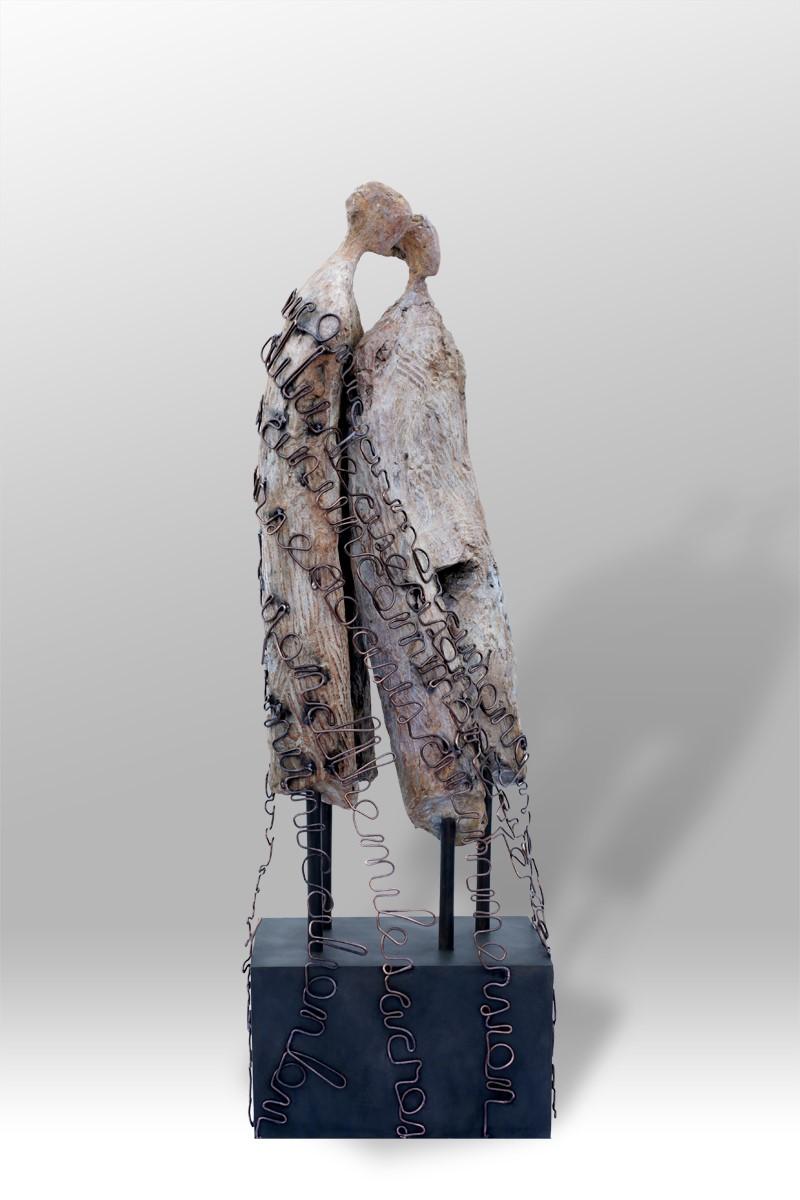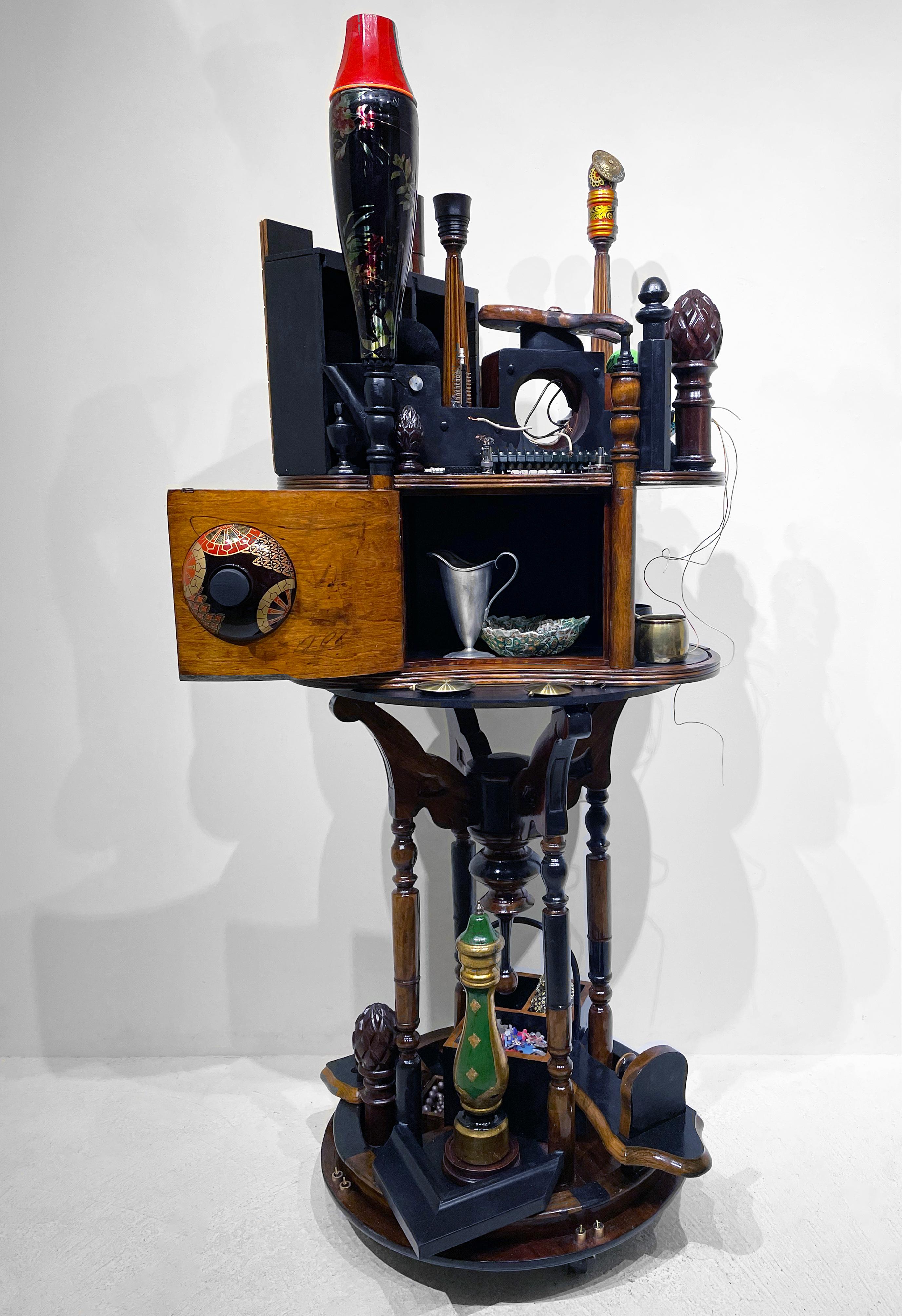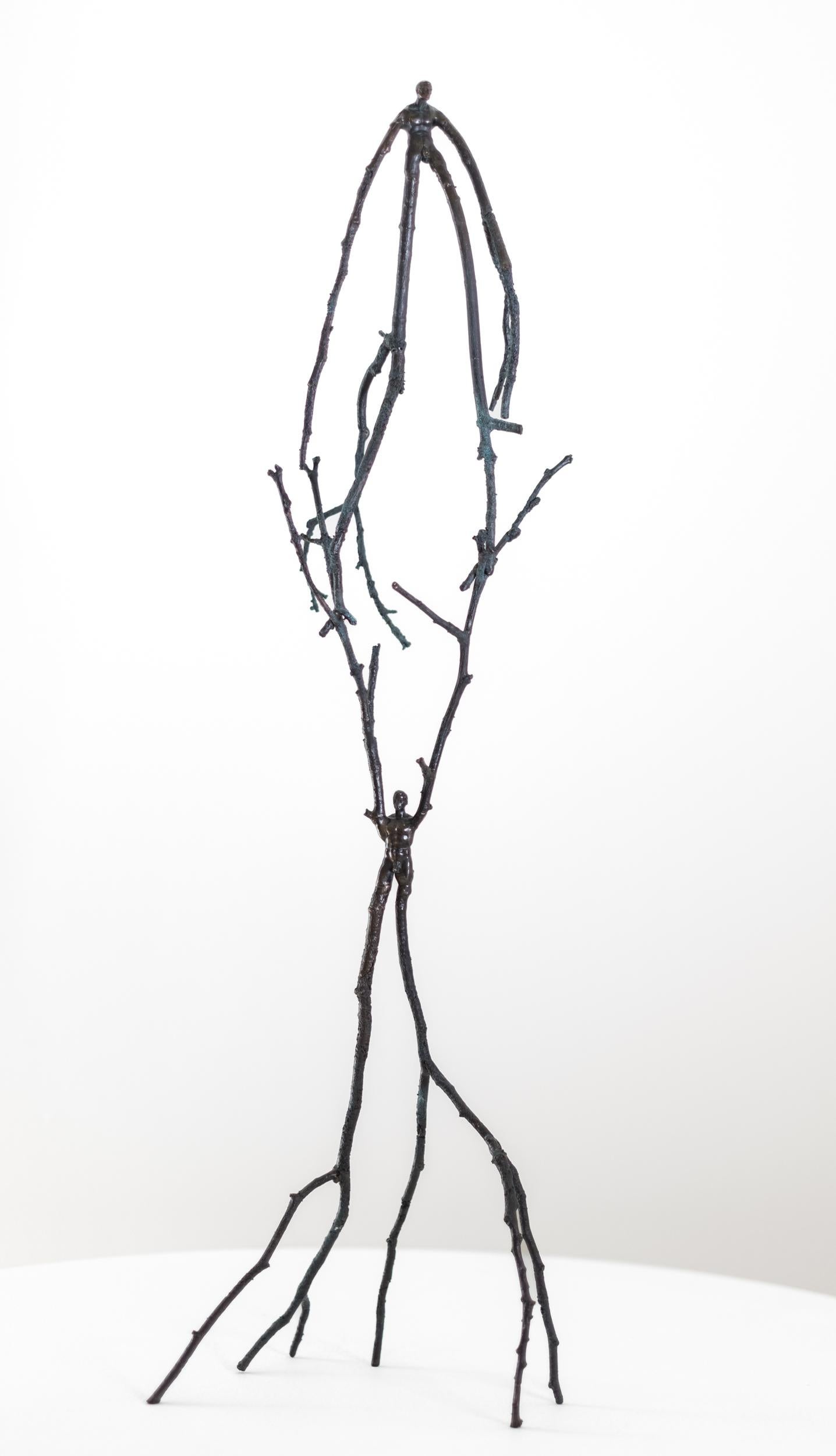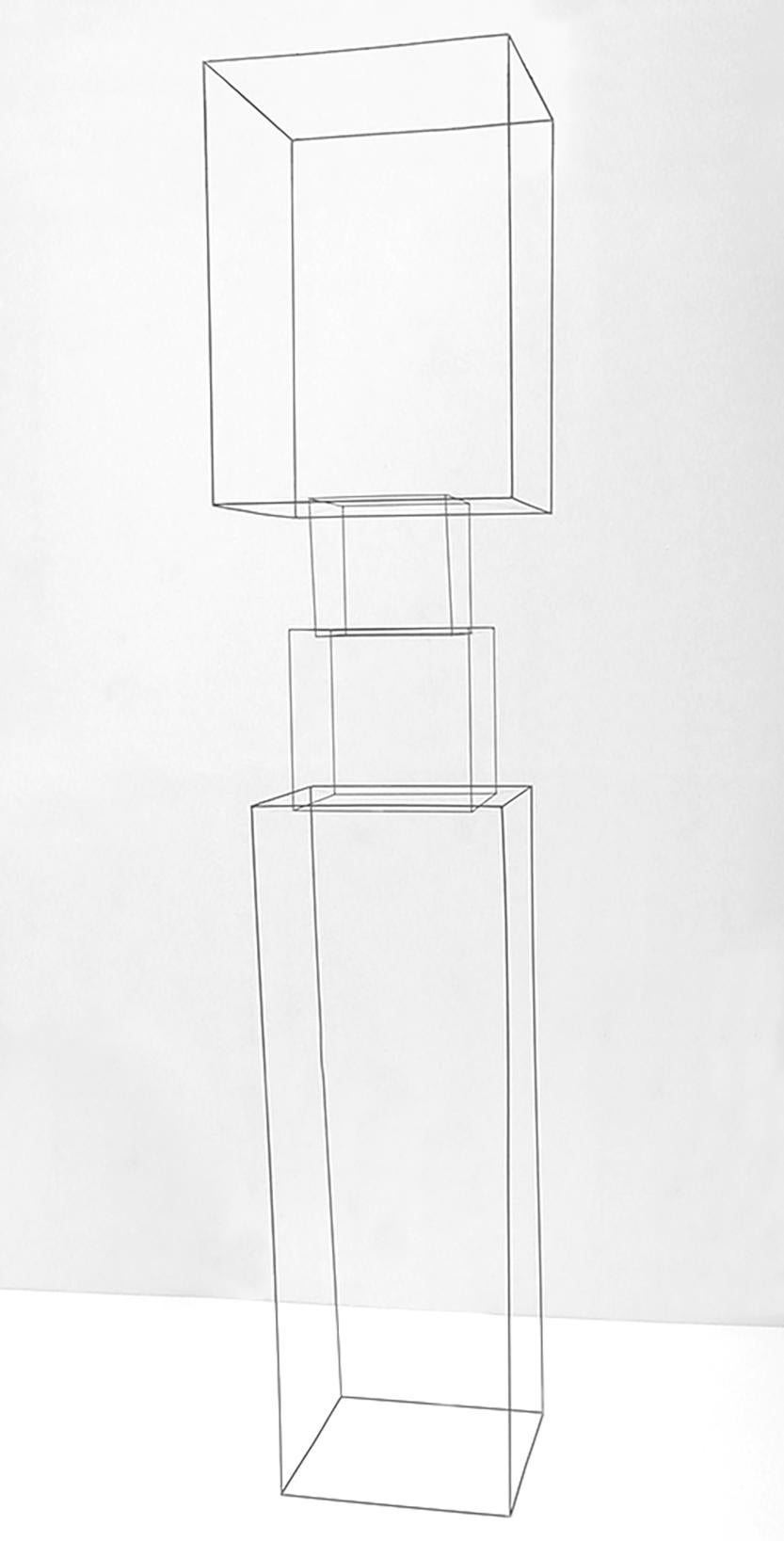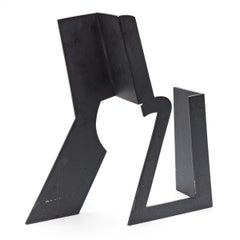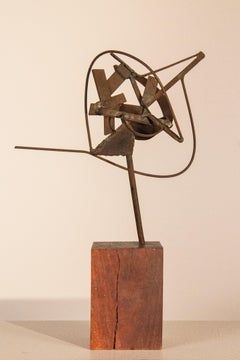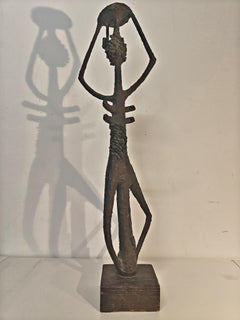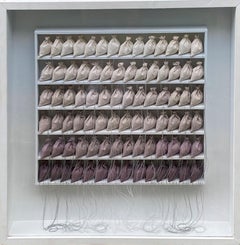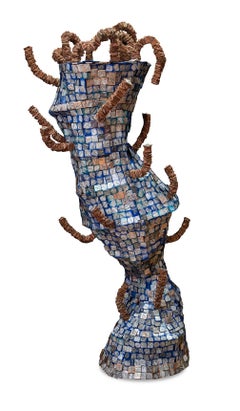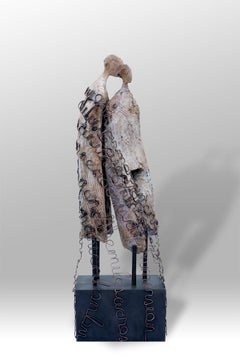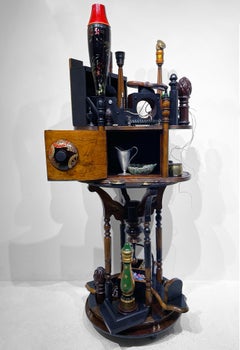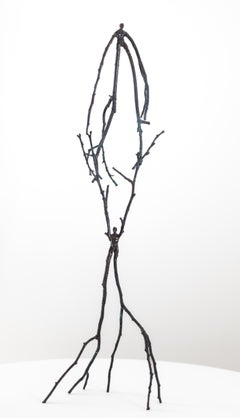Items Similar to "Monument 8" Calvin Marcus, Mixed Media Construction Contemporary Sculpture
Want more images or videos?
Request additional images or videos from the seller
1 of 3
Calvin Marcus"Monument 8" Calvin Marcus, Mixed Media Construction Contemporary Sculpture2018
2018
$12,000
£9,101.24
€10,453.13
CA$17,191.67
A$18,926.75
CHF 9,673.50
MX$225,895.86
NOK 123,164.34
SEK 115,254.36
DKK 78,078.80
About the Item
Calvin Marcus
Monument 8, 2018
Wood, glass, hot glue, cardboard, plastic, paper pulp, sulfur, ash, gesso, Cel-Vinyl, flashe, watercolor and other media sculpture
22" high x 13 1/4" wide x 13 1/4" deep
- Creator:Calvin Marcus (1988, American)
- Creation Year:2018
- Dimensions:Height: 22 in (55.88 cm)Width: 13.25 in (33.66 cm)Depth: 13.25 in (33.66 cm)
- Medium:
- Movement & Style:
- Period:
- Condition:
- Gallery Location:New York, NY
- Reference Number:1stDibs: LU1841215578992
About the Seller
5.0
Platinum Seller
Premium sellers with a 4.7+ rating and 24-hour response times
Established in 2022
1stDibs seller since 2022
126 sales on 1stDibs
Typical response time: <1 hour
- ShippingRetrieving quote...Shipping from: New York, NY
- Return Policy
Authenticity Guarantee
In the unlikely event there’s an issue with an item’s authenticity, contact us within 1 year for a full refund. DetailsMoney-Back Guarantee
If your item is not as described, is damaged in transit, or does not arrive, contact us within 7 days for a full refund. Details24-Hour Cancellation
You have a 24-hour grace period in which to reconsider your purchase, with no questions asked.Vetted Professional Sellers
Our world-class sellers must adhere to strict standards for service and quality, maintaining the integrity of our listings.Price-Match Guarantee
If you find that a seller listed the same item for a lower price elsewhere, we’ll match it.Trusted Global Delivery
Our best-in-class carrier network provides specialized shipping options worldwide, including custom delivery.More From This Seller
View All"Roland, " George Sugarman, Abstract Steel Sculpture
By George Sugarman
Located in New York, NY
George Sugarman (1912 - 1999)
Roland, 1970
Patinated steel
17 3/8 x 16 x 5 1/4 inches
Incised with the artist's signature and numbered "15/17" on the underside
Manufactured by Lippin...
Category
1970s Abstract Abstract Sculptures
Materials
Steel
"Untitled" Sidney Gordin, Abstract Metal Steel Sculpture
By Sidney Gordin
Located in New York, NY
Sidney Gordin
Untitled, 1958
Incised with initials
Welded Steel
15 x 10 1/2 x 6 inches
Provenance:
Eric Firestone Gallery, New York
On October 24, 1918, Sidney Gordin was born in Chelyabinsk, Russia. He spent his early years in Shanghai, China. At the age of four, he moved with his family to New York. Gordin’s nephew, Eliot Nemzer recalls that when Gordin was a child he attended “a dinner party with his parents. Someone showed him a book of pictures that when thumbed through quickly made the image appear to move. This person then gave him a wad of blank papers and something to write with. Sid created a similar type of moving image with his materials. All the adults at the party became quite excited [and] praised his efforts. Sid told me he thought this was a pivotal experience in guiding him towards his vocation.” During his formative years at Brooklyn Technical High School, he briefly contemplated the idea of becoming an architect; yet, by the time he enrolled at Cooper Union, he was determined to become a professional artist. There, he studied under Morris Kantor (1896-1974) and Leo Katz...
Category
1950s Abstract Abstract Sculptures
Materials
Steel
$11,200 Sale Price
20% Off
"Untitled" David Hare, Surrealist, Anthropomorphic, Modernist, Ab-Ex Sculpture
By David Hare
Located in New York, NY
David Hare
Untitled, circa 1949
Bronze
25 x 8 x 7 inches
Provenance
Kootz Gallery, New York
Collection of Samuel Kootz New York
Estate of the above
Collection of Dr. Joyce Kootz, Ne...
Category
1940s Surrealist Abstract Sculptures
Materials
Bronze
"Voyage I, " Rosamond Berg, Female Contemporary Minimalist Sculpture Artist
Located in New York, NY
Rosamond Berg (American, 1931 - 2018)
Voyage I, 1982
Mixed media construction including hand-dyed cotton cloth pouches
24 x 24 inches
Signed, titled an...
Category
1980s Contemporary Abstract Sculptures
Materials
Cotton, Thread, Glass, Wood
"Untitled" Beverly Pepper, Ultra Marine Blue and Steel Architectural Sculpture
By Beverly Pepper
Located in New York, NY
Beverly Pepper
Untitled
"BP" monogram stamped on the base
Stainless steel and enamel
6 x 6 3/4 x 3 1/8 inches
Born in 1922 in Brooklyn, Pepper trained to as a painter with Fernand ...
Category
1960s American Modern Abstract Sculptures
Materials
Enamel, Stainless Steel
"Untitled (Bookends)" Steven Wolfe, Illusionistic Book Sculpture, Trompe-l'oeil
Located in New York, NY
Steven Wolfe
Untitled (Bookends), 1990
Stamped: SW 1990 2/3
Painted Bronze
6 1/4 x 7 x 4 inches
Edition 2/3
Steven Wolfe crafted sculptures and drawings of remarkable skill and vis...
Category
1990s Contemporary Figurative Sculptures
Materials
Bronze
You May Also Like
Used to be Amazon Boxes, Original Abstract Sculpture, 2021
By Sam Silberstein
Located in Boston, MA
Artist Commentary:
During the COVID-19 pandemic I decided to collect boxes from around my neighborhood and repurpose the cardboard material. By utilizing materials that would otherwi...
Category
21st Century and Contemporary Abstract Abstract Sculptures
Materials
Mixed Media, Cardboard
New World Symphony 5/9
By JD Hansen
Located in Napa, CA
jd Hansen creates art that explores the juxtaposition of vulnerability and strength using the human and animal form. Her work excavates the intricacies of human psychology, non-verba...
Category
2010s Contemporary Figurative Sculptures
Materials
Bronze, Copper
Linda Stein, Favorites 1232 - Contemporary Art Mixed Media Assemblage Sculpture
Located in New York, NY
This work from Linda Stein's Displacement From Home series draws from the tradition of wunderkammer/cabinets of curiosities to highlight the global displacement and traumatic memory ...
Category
2010s Contemporary Abstract Sculptures
Materials
Metal
$36,000 Sale Price
20% Off
Assist - surrealist, abstract, male, figurative, bronze tabletop sculpture
By P. Roch Smith
Located in Bloomfield, ON
This indoor figurative bronze sculpture comes from the imagination of Canadian artist Roch Smith.
The clever sculptures of Roch Smith are often inspired by images, forms and texture...
Category
2010s Contemporary Figurative Sculptures
Materials
Bronze
Untitled #243 Sculpture by Jay Kelly
By Jay Kelly
Located in Morton Grove, IL
Jay Kelly
Untitled #243 sculpture
Polychrome, wood and metal
10.25 x 2 x 2"
signed by artist
2010
Category
2010s Contemporary Abstract Sculptures
Materials
Metal
$4,960 Sale Price
20% Off
Homenaje A La Levedad III - 21st Century, Contemporary, Abstract, Iron Sculpture
By Lukas Ulmi
Located in Barcelona, Catalonia
Lukas Ulmi’s work unveils the hidden beauty of shapes taking stones, seemingly static forms, incomplete or meaningless objects and turning them into authentic sculptures where weight...
Category
21st Century and Contemporary Contemporary Abstract Sculptures
Materials
Iron
More Ways To Browse
Philip Mccracken
Picasso Ceramic Goat Plate
Posset Pot
R C Gorman Pottery
Ramirez Manuel
Rene Coutelle
Rennert Inner Dialogue
Resin Gummy Bear
Ricardo Mesa
Richard Macdonald Orpheus
Richard Macdonald Red Dress
Richard Macdonald Trumpeter Draped
Richard Orpheo
Riho Kuld
Rodin Man With Broken Nose
Rolling Ball Sculpture
Rosendo Porro Cuesta
Ruslan Karablin
